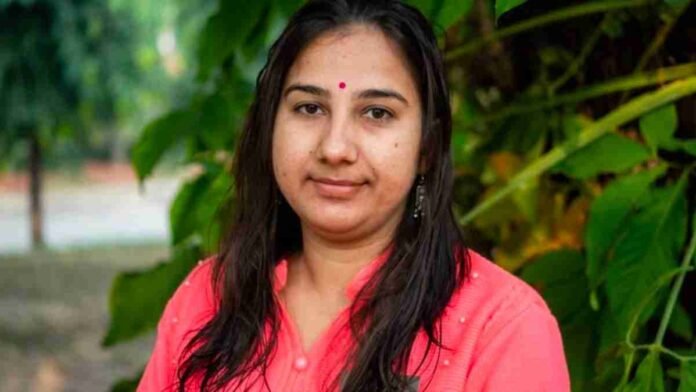A viral video in 2022 showed ‘Sarpanch Pati’, where male relatives of women’s candidates oath to office, highlighting widespread patriarchal practices in India. Dolly Verma, also called Dolly Sarpanch, has launched an online campaign and advocates for government training, and independent representation.
100
A video of the state’s Panchayat elections’ oath-taking went viral in August 2022. The main issue was that none of them were elected but were the male relatives of women Panchayat winners.
In Madhya Pradesh and most Indian states, “Sarpanch Pati” is used to represent a male family member because the seat was reserved for women.
Kapil Patil, MoS Panchayati Raj, informed the Rajya Sabha in February 2023 that 21 states including Assam, Andhra Pradesh, and Bihar have provided 50% reservation for Urban Local Bodies Elections and Panchayati Raj.
Sarpanch Patis failed women empowerment. Women’s empowerment was boosted by the 50% local body reserve. Unfortunately, the spouse or other male members of female legislators still have the actual authority.
It’s typical for men to substitute women on political campaign posters.
Bihar sarpanch Dolly Verma is fighting patriarchy online.
Nguvu Change Leader Dolly, also known as ‘Dolly Sarpanch’, is the Sarpanch of 13 wards of Shadipur gram panchayat in Gaya. She believes elected women representatives should operate freely without being influenced by their male family members.
“I am disappointed to see Women Sarpanches being marginalized by their husbands or other family guys in public venues. “When husbands and fathers become Sarpanch Patis or proxies, it insults democracy and Gram Panchayat voters,” Dolly remarked.
‘Dolly, from Meerut, has an MBA in International Business and worked for MNCs before entering politics in her husband’s hometown.
Dolly, a second-term Sarpanch, has witnessed personally how pervasive the “Sarpanch Pati” system is and how many husbands control the business, sidelining their wives.
On behalf of elected women Sarpanches, their male family members or usually Sarpanch Patis formally attend in government sessions without winning elections. Nobody objects. They are larger than the lady Sarpanch on public posters and banners. “Such conduct violates democracy and the Indian Constitution,” she remarked.
Dolly believes that reserving 50% of seats for women is pointless if they cannot serve their communities unimpeded.
A decade ago, Sarpanch Pati was a hot topic. Then-Women and Child Development Minister Maneka Gandhi suggested a rule to disqualify woman sarpanchs who delegated their duties to their spouses.
“End the Sarpanch Pati system,” Modi said in 2015.
In April, a 31-member Parliamentary Standing Committee on Rural Development and Panchayati Raj, chaired by Lok Sabha MP from DMK Kanimozhi Karunanidhi, recommended that women elected representatives in panchayats be empowered and trained in leadership to prevent such practices.
Dolly adds, “I believe that if the government offers capacity-building training to elected women representatives, they can bring lasting change and empower other women as well.”
She thinks it’s time to criminalize this practice.
She also believes society must embrace women leaders’ independence.
“Our society is deeply patriarchal, many can’t even imagine women as political leaders and elected representatives,” Dolly remarked. Only strong and independent women politicians and ministers will change this societal mentality. I hope more females, particularly in rural places, would become politically conscious and know their rights as they get educated. “Change will come, if not today, soon.”
Conclusion:-
In August 2022, a viral video showed the Madhya Pradesh Panchayat election oath-taking, when none of the elected delegates were elected but were the male relatives of women candidates who won. “Sarpanch Pati”—50% women in local bodies in 21 states—is common in India. The spouse or other male relatives of female legislators have the actual authority. Bihar sarpanch Dolly Verma has begun an online campaign against patriarchal behavior, arguing that elected women officials should be independent of their male family members. She thinks society’s view of women leaders would change if the government provides capacity-building training to elected women legislators.



